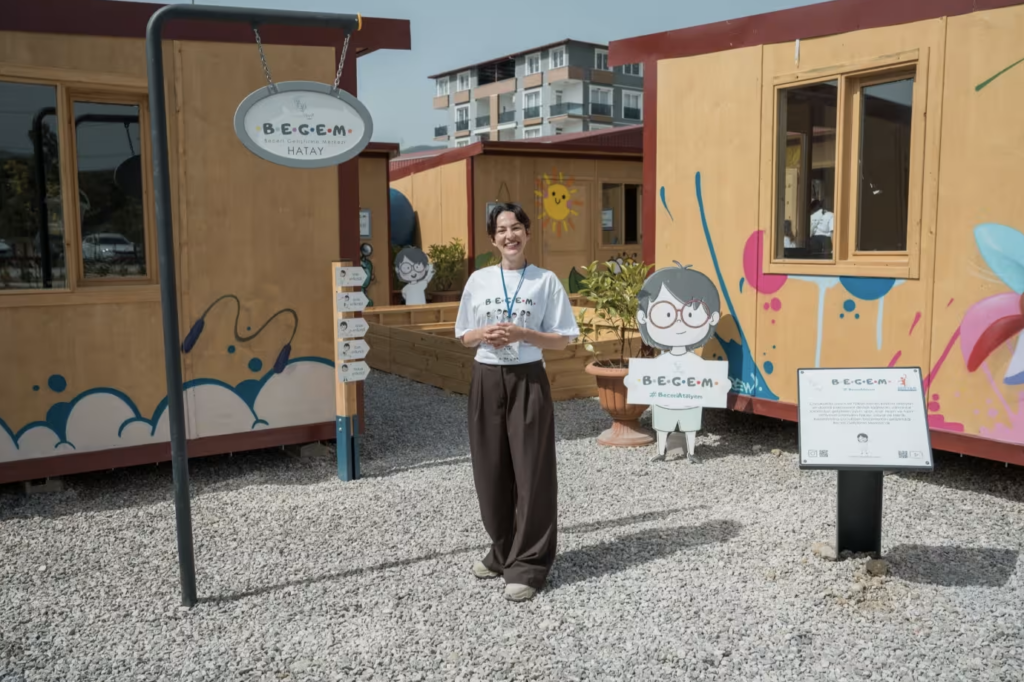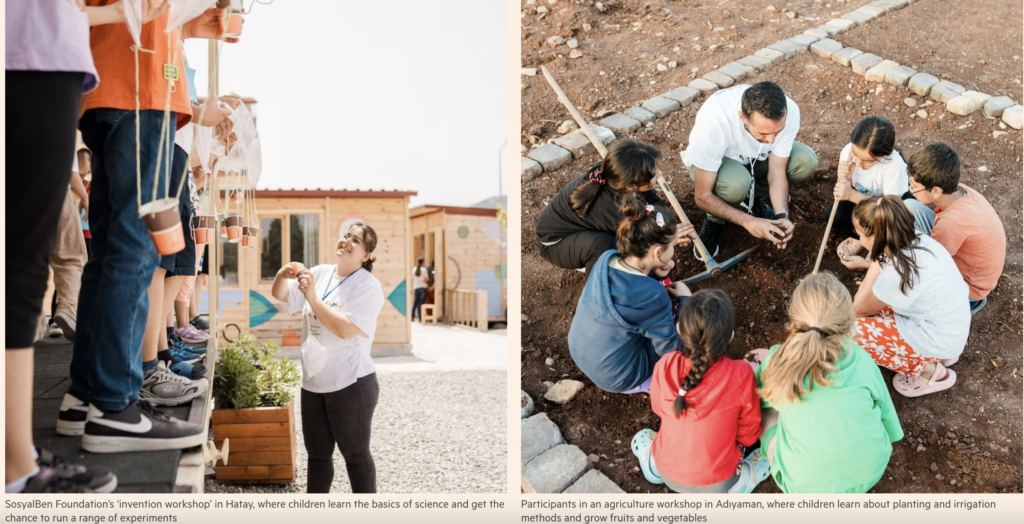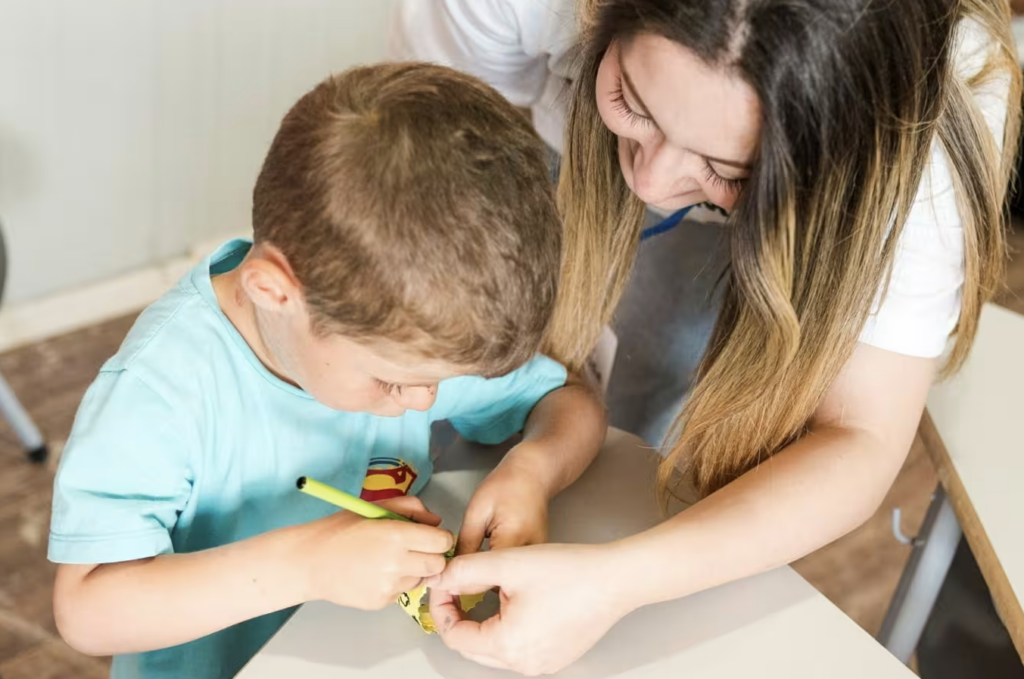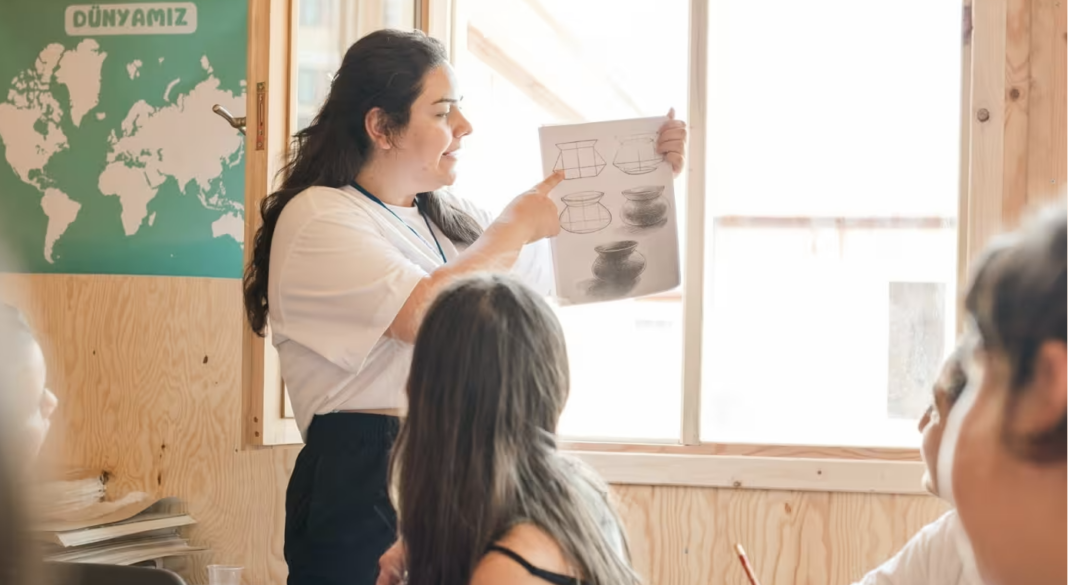A Turkish foundation is looking beyond the provision of ‘psychological first aid’ to give young people career opportunities
Financial Times, July 11, 2024, by Serra Yedikardes
Ece Çiftçi founded the SosyalBen Foundation in 2013, when she was just 14 years old, dreaming of opening up careers in creative industries and sport to children from Turkey’s remotest areas.
But, following the February 2023 earthquakes in Turkey and Syria, the foundation found itself providing an emergency response, supporting children aged 7-13 in south-east Turkey. Today, the foundation operates in 73 Turkish cities and a further 11 abroad.
SosyalBen has not lost sight of Çiftçi’s original dream, however. While the organisation focuses on tackling the trauma and immediate after-effects of disaster, it still tries to give children and their communities some hope for the future.
“Art schools or sports-team entrance exams don’t wait for children disadvantaged by disasters,” explains Çiftçi. “We guide young people to dream and become stars in sports, arts, and sciences.”
After the 2023 disaster, the foundation set up two permanent skill-development and psychosocial support centres in the southeastern Turkish cities of Adıyaman and Hatay.

According to Save the Children, the earthquakes — one of which reached a magnitude of 7.8 — affected 6.2mn children in Turkey and Syria, leaving 660,000 living in “tents and containers” in Turkey alone.
In such conditions, children and adolescents need private and safe places where they can socialise and play freely, stresses Dilay Utkan, a Save the Children psychologist in Hatay. “With a disaster of this scope, children’s routines and environments are completely changed,” she says.
SosyalBen volunteer Zehra, who is 23 and has worked with the foundation since it came to her school in Hatay in 2014, says that being involved in a project that gives young people some sense of normalcy has also helped her, as an earthquake victim.
There is very little infrastructure left in Hatay, she points out, with “nowhere most children can go outside their school” or beyond the “container cities” in which they live. SosyalBen’s centre therefore represents “a safe and children-friendly space” where they “can start addressing their earthquake-related traumas and come back to life”.
Since April, the foundation has held workshops in drawing, conducting scientific and technical experiments, playing sports, farming and performing music — giving children opportunities to develop skills and socialise with their peers outside of school hours.

This helps “compensate for the loss of spaces where children feel free and prioritised”, says Çiftçi. SosyalBen’s centre encourages a range of activities, from playing to growing plants and vegetables.
One 12-year-old who has taken part in the technical workshops in Adıyaman told volunteers that her ambition was to become an engineer. The sessions then gave her the opportunity to try her hand at making designs, models and experiments.
Children’s progress in the workshops is tracked over a six-week period, says Çiftçi. Then, “we will be helping those with special talent and interests access sport academies or conservatories, where they can specialise as artists, scientists or athletes.”
Research shows that the cumulative effects of disasters on children can be deep and long-lasting. Harry Patrinos, a World Bank education economist, notes that traumatic occurrences such as “disconnecting from peers, and the loss of parents’ jobs . . . have economic and social costs [on children’s development] that might last until adulthood”.
Patrinos points to research, for example, into the after-effects of the October 2005 earthquake in Kashmir on children. It indicates that the disadvantages caused by natural disasters can continue into adult lives. Specifically, they can lead to a 15 per cent loss in lifetime earnings.
The International Play Association — a non-governmental organisation founded in 1961 in Copenhagen — also notes that, for children in conflict and disaster zones, play is crucial for health, development and survival, as it helps to create a feeling of normality and routine.
Isang Awah, head of advocacy at the University of Oxford’s Global Parenting Initiative, also emphasises the importance of parental support and acknowledges that creative activities can give children “ways to express themselves and cope with their experiences”. Through these activities, says Awah, parents can equip children with emotional and social skills — such as empathy, compassion, and conflict resolution — which help them engage with others in their daily lives.
SosyalBen uses psychology professionals to curate its workshops in such a way that participants feel in control of their lives, learn how to stay in the moment, and express and regulate their emotions. Most workshops involve breathing exercises and play sessions where children can act out their feelings and experiences.

“Here, we provide psychological first aid,” says Ayşe Birim, 26, a psychologist and head of SosyalBen’s general operations. “We spot trauma, give children the tools to tackle it and, in very serious cases, help them access further psychiatric support”.
The foundation also gives young people opportunities to act as educators or mentors.
Serkan, 35, a SosyalBen sports workshop instructor, previously worked at an Adıyaman school destroyed in the earthquakes. “We know the needs of children and families very well because almost everyone who works here had experienced the earthquakes and worked with children before,” he says.
Adıyaman and Hatay have a long way to go to reach anything approaching their pre-earthquake states. Large parts of both cities remain under rubble and have continuing problems with water, electricity and transport. Serkan believes, however, that SosyalBen’s presence gives people trust that long-term change is possible. “It is extremely precious for parents and children to know that we will be here for months and years to come.”
As SosyalBen looks to open four new centres by the end of this year, Çiftçi argues that bringing up forward-looking children is indispensable if cities are to thrive. “It will be a while, here, before things get back to normal,” she says. “But, with persistent support, these children can become global citizens who can carry their cities forward.”

